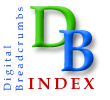
| Search |
 |
||||||||
| Words | Images | Audio | Scholar | ||||||||
|
||||||||
|
For Janine and Adrian research is truly fun when it involves search engines like Google. To encourage such an attitude about research, teachers could accept and even encourage the use of search engines like Google and develop with students ways to evaluate the search results these services return. Teachers might also find ways to incorporate the element of surprise into their catalog of useful search practices--even going so far as to teach specific strategies for "randomizing" a search in conjunction with "treasure-hunt" strategies for finding specific information. While every researcher may not agree that online search activities are enjoyable, the notion that research can be fun is often lost in the composition classroom. Talking about online searching as potentially fun may play an important part in fostering in students a positive attitude toward research, especially when it is connected to established practices that students bring to the classroom, such as "googling" or various gaming activities. We as researchers can do more to value the practices associated with online searching, even in general search engines like Google or commercial search engines like Amazon. Just as James Gee (2003) and Stuart Moulthrop (2004) argued that the practices associated with playing video games can help students develop literacy skills necessary to succeed in the digital age, so, too, can researchers consider how online search practices can help students (and themselves) develop important researching and literacy skills--even if these practices are fun. Ultimately, the use of online search engines can be recognized explicitly as a legitimate part of composition processes--one requiring attention by teachers, researchers, librarians, and developers of academic databases. Furthermore, a better understanding of the search process as an activity that has not only practical goals, but also emotional and social benefits as well, may be an important step towards a design mentality for information systems that takes these multiple goals and benefits into account. In his brief but thoughtful discussion of research styles, Scott Brandt (1999) explained that the "mental maps" of some researches (we might also call them metaphorical maps) could be compared to a hiker exploring a mountain trail. It is fairly easy to imagine that such researchers would be more attracted to learning activities and information designs that emphasize a more "organic" and less structure-driven approach to searching. As Brandt noted, too much information in the form of search rules or narrowly focused tools could be counter-productive when dealing with this type of researcher. In the increasingly multimedia world we inhabit, students are arguably increasingly comfortable with this type of research practice.So while Vicki Tolar Burton and Scott A. Chadwick (2000) called for composition textbooks to provide an explicit procedure for finding sources for research, this study suggests that prescribing one singular, linear procedure is not sufficient. Student researchers use a variety of different methods, drawing from and connecting multiple research spaces. This finding asks those of us who teach writing to recognize the value of multiple and varied approaches to online research. |